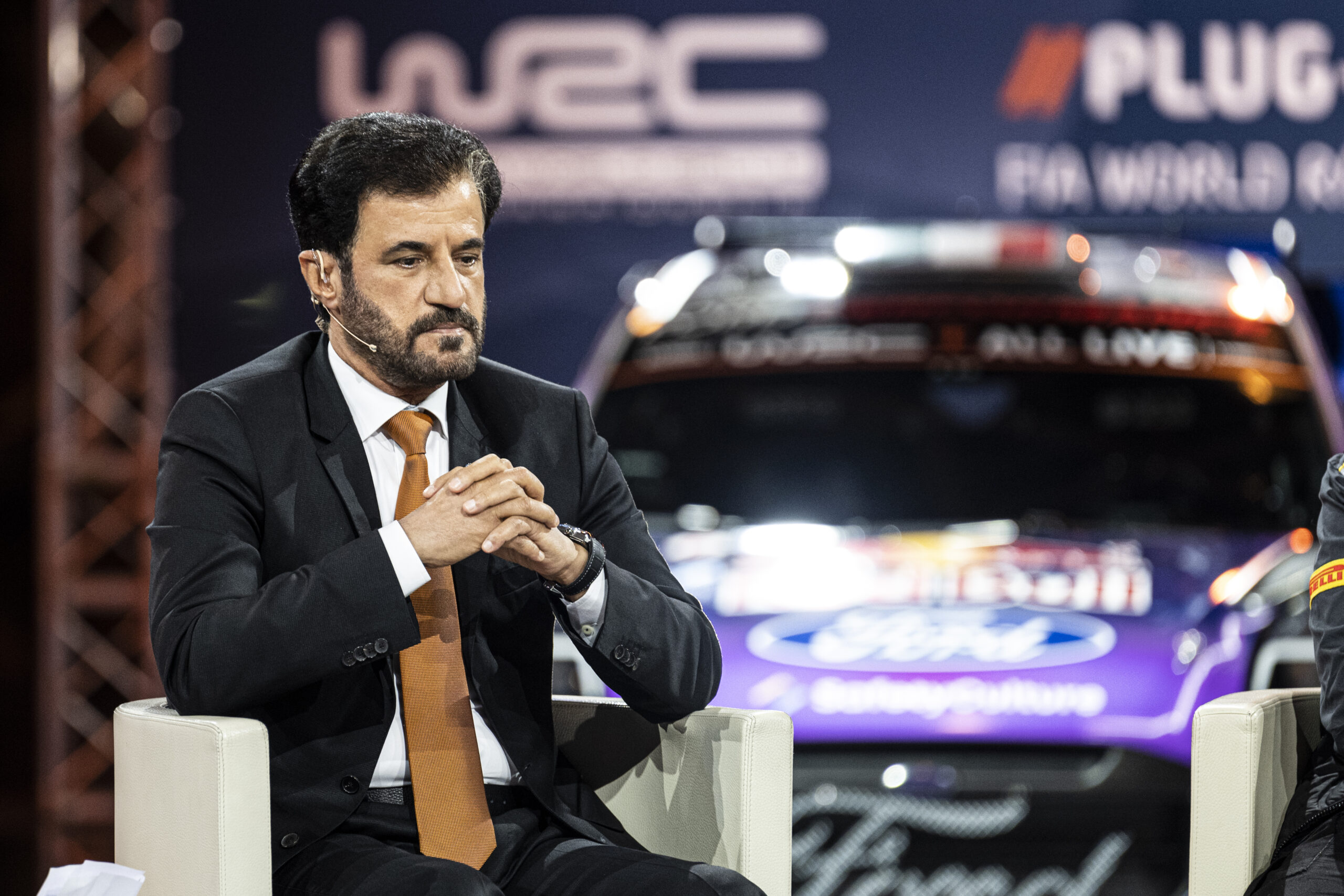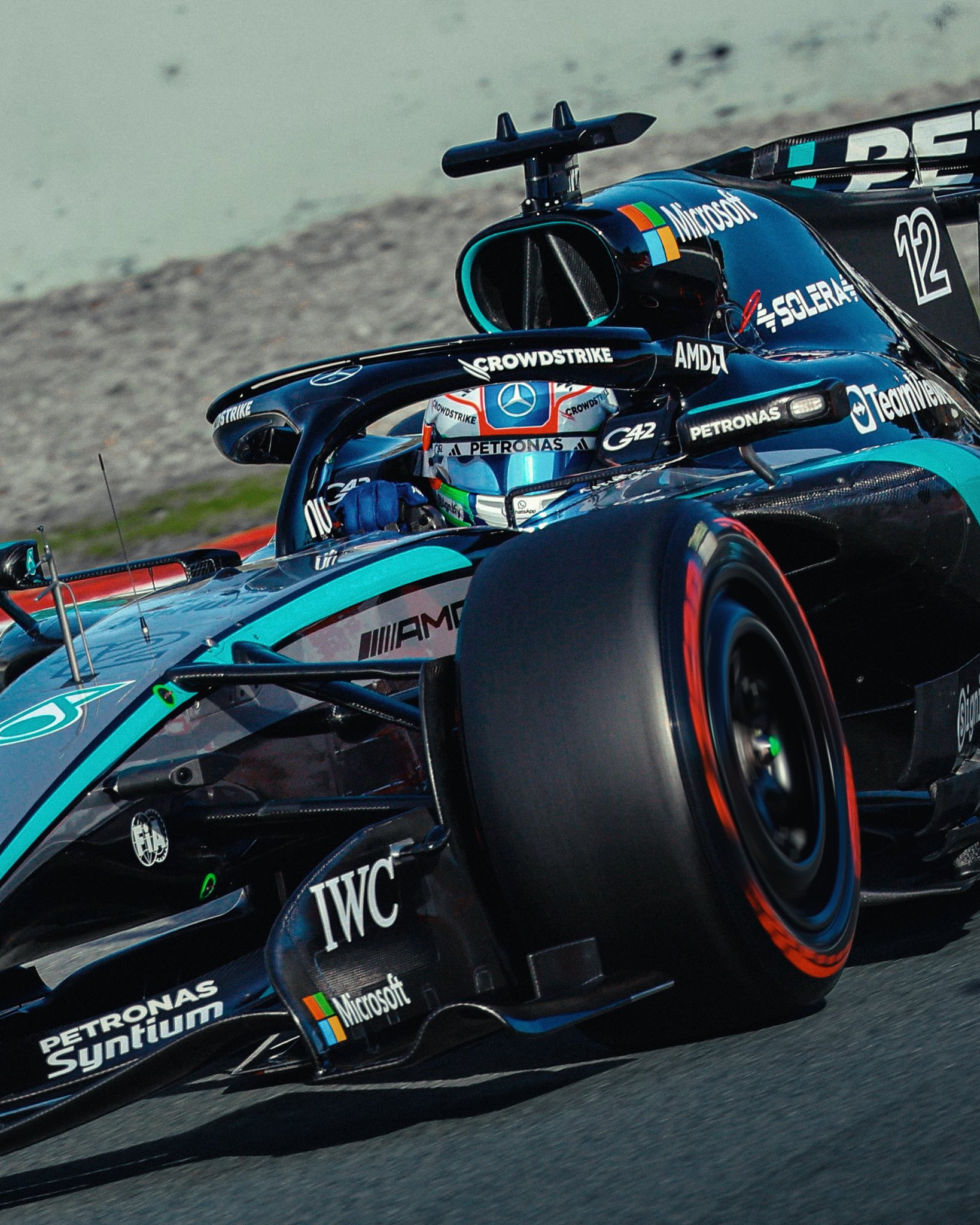Amongst several revelations and controversies currently facing the sport, Mohammed Ben Sulayem, the president of the Fédération Internationale de l’Automobile (FIA), has found himself at the centre of another Formula 1 storm.
Allegations are stemming from the 2023 Saudi Arabian Grand Prix, where a whistle-blower has come forward with the claim that Ben Sulayem attempted to intervene in the outcome of the race by influencing the penalty imposed on Fernando Alonso of Aston Martin.
The claim comes from a report by an FIA compliance officer to its ethics committee, which has been seen and reported by BBC Sport.
Neither Ben Sulayem nor the FIA have responded to requests for comment at the time of writing.
Alonso had received penalties for a grid infringement and subsequent pit lane activity, which initially dropped him out of contention for a podium finish. The penalty was imposed as Alonso’s car had been touched by the rear jack before the full-time duration had been seen through, breaking the rules.
However, the whistle-blower alleges that Ben Sulayem required the stewards to overturn the penalty, ultimately reinstating Alonso’s podium position.
The penalty in question dropped Alonso from third to fourth position, behind Mercedes’ George Russell, but withdrawing it returned him to a podium position, along with the two Red Bull Racing drivers, Max Verstappen and Sergio Perez.
The reasoning given by the stewards for overturning the decision was: “We concluded that there was no clear agreement, as was suggested to the stewards previously, that could be relied upon to determine that parties had agreed that a jack touching a car would amount to working on the car.”
At the time of the race, article 54.4c) of the sporting regulations said: “While a car is stationary in the pit lane as a result of incurring a penalty in accordance with Articles 54.3a) or 54.3b) above, it may not be worked on until the car has been stationary for the duration of the penalty.”
However, after the race, an additional sentence was added to the article: “In this context, touching the car or driver by hand or tools or equipment will all constitute working.”
The gravity of these allegations is huge, and if true, could have a major impact on the sport’s leadership, and controlling members of the FIA, as they are tasked with upholding the integrity and impartiality of motorsport, and each Formula 1 season.
The incident raises major questions about the independence of regulatory bodies and the significance of fair competition in Formula 1, and the ethics committee is expected to take four to six weeks to issue its final report on the matter.
The document issued by the stewards at the time of the race sheds light on the review process and decision-making behind the penalty reversal. Aston Martin had presented new evidence challenging the interpretation of the rule regarding working on the car during a penalty, prompting the stewards to reconsider their initial decision.
Despite the complexities of the case, the stewards ultimately concluded that there was no clear agreement on the interpretation of the rule, leading to the reversal of the penalty. However, this incident is not an isolated event but rather the latest in a series of controversies surrounding Ben Sulayem’s position as FIA president.
One of the key concerns raised by critics is the potential breach of trust in the regulatory framework of Formula 1.
The sport thrives on a balance of competition and fairness, with teams and drivers relying on the impartiality of governing bodies to ensure a level playing field within each race. Any signs of interference or favouritism threaten to undermine the credibility of the sport and alienate both fans and stakeholders.
Furthermore, the departure of several senior figures from the FIA in recent months adds to the sense of instability within the organisation. While the reasons for their resignations remain undisclosed, their departure raises questions about the internal dynamics and governance structures of the FIA under Ben Sulayem’s leadership.
The outcome of the investigation by the ethics committee will not only determine the fate of the individuals involved but also shape the future direction of the FIA and its role in safeguarding the integrity of the sport.
This is not the first potential racing scandal that Alonso has been indirectly involved in.
One of the most infamous incidents in Formula 1 history dates back to the 2008 Singapore Grand Prix, a scandal widely known as “Crashgate.” During the race in Singapore, whilst Alonso was driving Renault, a deliberate attempt to manipulate the outcome of the race occurred.
Alonso’s teammate, Nelson Piquet Jr., was instructed by team principal Flavio Briatore and engineering director Pat Symonds to crash deliberately, triggering a safety car that benefited Alonso’s race strategy, leading him to ultimately win the race, after starting from P15.
However, Piquet Jr. revealed the orchestrated crash to the FIA in 2009, leading to a full investigation. The repercussions were severe for Renault, with Briatore and Symonds receiving lengthy bans from involvement in motorsport, and the team itself facing significant financial penalties.
Alonso, although not necessarily involved in the planning or execution of the crash, faced scrutiny for his role in the incident, and the benefit he received from it.





